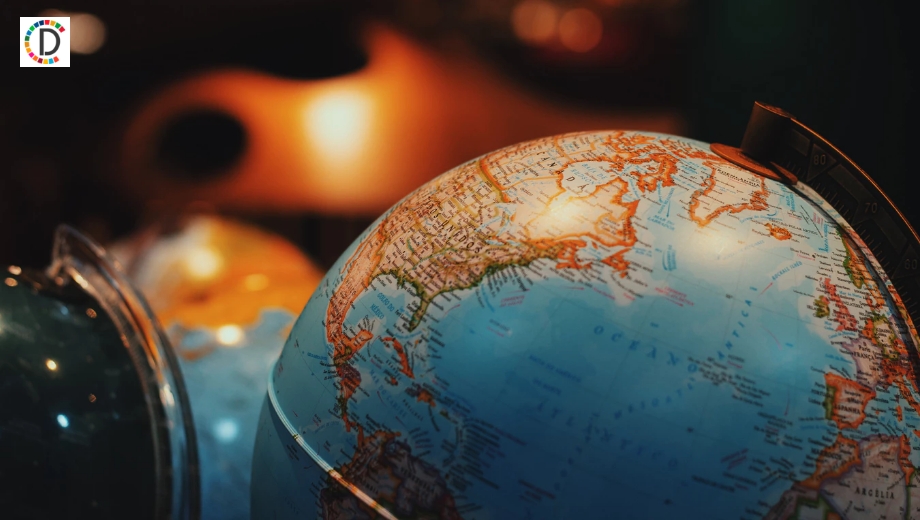Nigeria votes for a new president after delay

Abuja, Feb 23 (AFP) Nigerians voted for a new president on Saturday after a week-long postponement that has raised political tempers, sparked conspiracy claims and stoked fears of violence. Delays in the delivery of some materials and deployment of staff force to the nearly 120,000 polling stations forced an extension to voting past a 2:00 pm (1300 GMT) cut-off.
Results are expected from early next week, with the winner gaining control of Africa's most populous nation and leading oil producer for four years. President Muhammadu Buhari was one of the first to vote, and emerged from the polling booth in his home town of Daura, in the northwest state of Katsina, to say he was confident of victory.
"So far, so good," he told reporters. "I will congratulate myself. I'm going to be the winner." His main challenger, Atiku Abubakar, 72, voted in Yola, in the northeastern state of Adamawa Shortly before polls opened, one soldier was killed and 20 others injured as Boko Haram fighters tried to infiltrate the northeastern city of Maiduguri.
Security sources and residents said multiple explosions were heard as the Islamist militants peppered the city with mortar fire but were repelled. There were also clashes in Auno and Goniri, on both sides of the border between Borno and Yobe states, and another rocket attack in the town of Gwoza.
More than 500 Chadian troops were deployed as part of the regional force fighting Boko Haram as reinforcements. Nigeria's Independent National Electoral Commission (INEC) last Saturday announced a one-week delay to the election, just hours before it was due to get under way.
That angered voters who had already travelled to their hometowns and villages to participate, and saw the main parties accuse each other of conspiring with the INEC to rig the result. Neither produced evidence and the elections watchdog has worked round the clock to overcome difficulties in delivering materials, which it had blamed for the postponement.
INEC commissioner Festus Okoye said in some of Nigeria's 36 states, all polling stations opened on time. But problems with electronic voter card readers and unspecified "security issues" caused delays elsewhere, he added. In those places "there will be an extension of hours", he said.
INEC's logistical fine-tuning has been overshadowed by comments from Buhari that he had ordered security forces to be "ruthless" with vote-riggers and ballot-box snatchers. Critics said his warning was a "licence to kill" to the police and the military, while Abubakar said his comments did not befit an elected head of state.
Buhari has since sought to reassure voters not to be afraid, promising an "atmosphere of openness and peace, devoid of fear from threat or intimidation". Analysts SBM Intelligence say 233 people were killed in 67 incidents of election-related violence from last October to Friday -- an average of two people per day.
In southern Rivers state, unknown gunmen shot dead a prominent local member of Buhari's All Progressives Congress party and his brother, police said. There were also sporadic incidents of snatching election materials, said police spokesman Nnamdi Omoni.
The election campaign came against a backdrop of wider violence from Boko Haram and criminal gangs in the north that have killed more than 200 people this month alone. Analysts said that and the delay could hit turn-out.
Just over 84 million people were registered to vote but only 72.7 million (86 per cent) of those will be allowed to cast ballots, as they have picked up their voter identity cards. Parliamentary elections are also being held.
In 2015, former military ruler Buhari became the first opposition candidate in Nigerian history to defeat a sitting president, beating Goodluck Jonathan by 2.5 million votes. Buhari has again vowed to be tough on insecurity and corruption, and wants to complete much-needed road and rail infrastructure projects, as well as social mobility schemes.
Abubakar is a pro-business free marketeer whose main pledges have been to privatise giant state-run companies and float the embattled naira currency. Nigerian elections have previously been characterised by voting along ethnic and religious lines.
But with Buhari and Abubakar both northern Muslims, that could split the northern vote, making southern states a key battleground. Opponents have accused Buhari of trying to manipulate the judiciary that would rule on any dispute about the results, after he suspended the chief justice this month.
Nigeria's Business Day newspaper on Friday said whoever wins has to repair a "broken economy" limping back from recession, and hit by high unemployment, inflation and weak growth. (AFP) SMJ SMJ
(This story has not been edited by Devdiscourse staff and is auto-generated from a syndicated feed.)
- READ MORE ON:
- Muhammadu Buhari
- People's Democratic Party
- Donald Trump
- Boko Haram
- Atiku Abubakar
- Leonardo DiCaprio
- Lotto 6/49
- Coty Awards
- President of Venezuela
- Vice president
- President of India
- Systems analyst
- Business Analyst
- Financial Analyst
- Voter registration
- Voter Identification laws
- League of Women Voters
- The Nation
- First Nations
- United Nations
ALSO READ
Catkins are flowering at different times as climate changes - threatening their pollination and the wildlife that feed on them
Wisconsin voters approve ban on private money support for elections
FEATURE-Bees vs. drones: How tech is tackling crop pollination
CPI's Annie Raja to file nomination from Wayanad against Rahul Gandhi today
AAP has failed to fulfil its commitments: Karshan Karmur on his resignation










